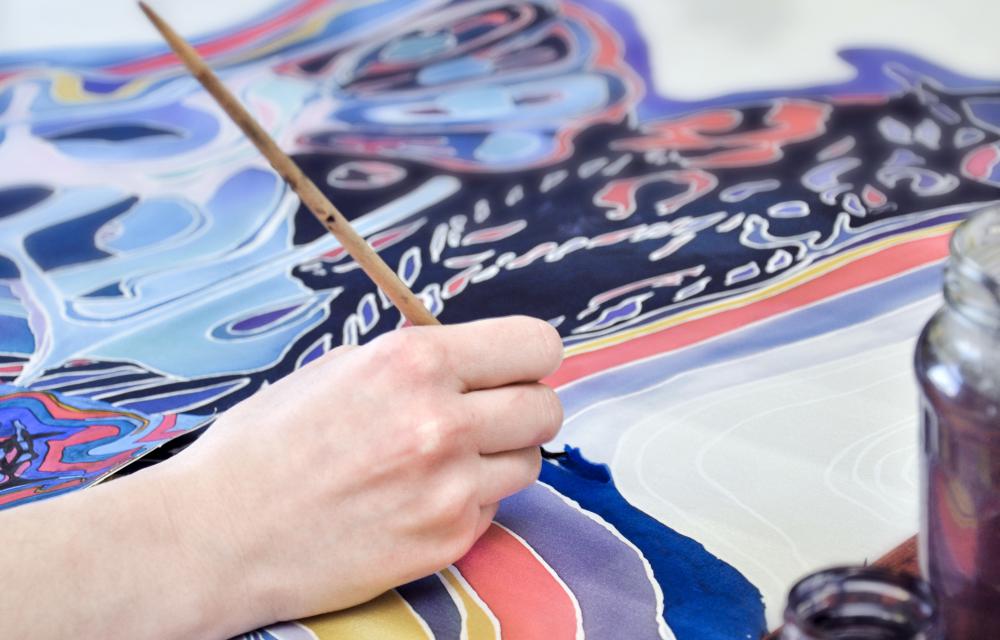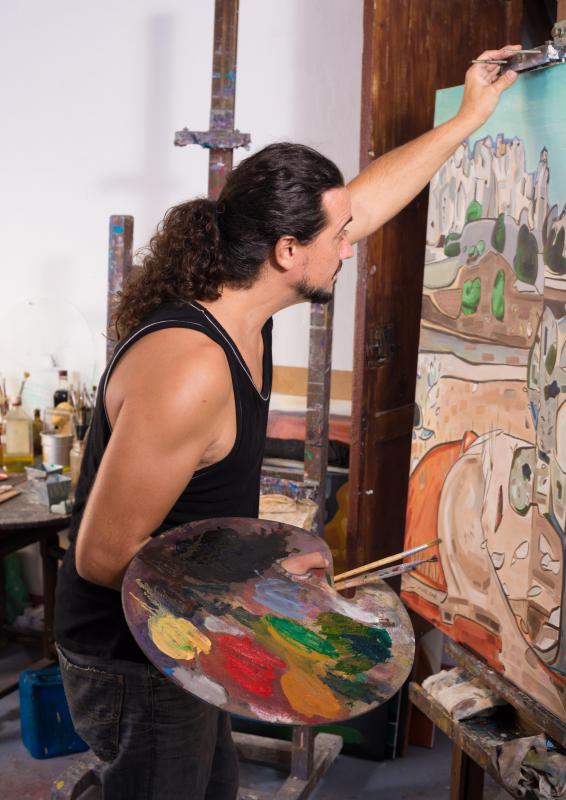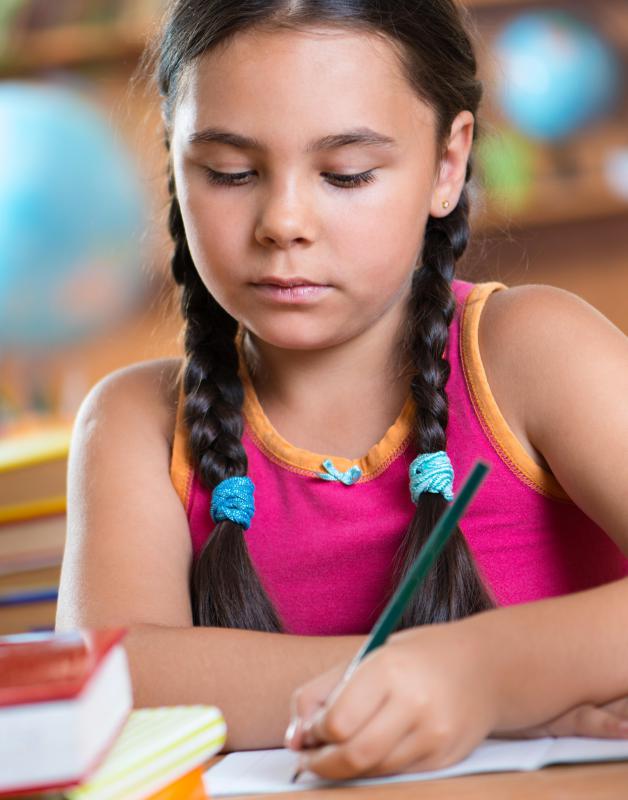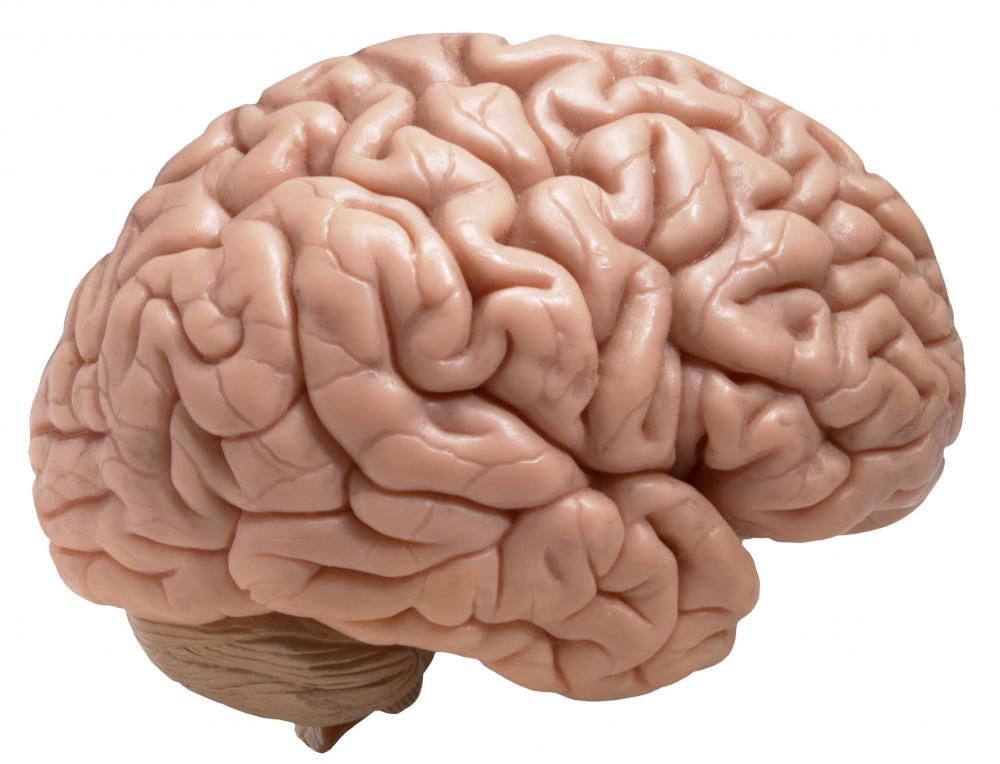At TheHealthBoard, we're committed to delivering accurate, trustworthy information. Our expert-authored content is rigorously fact-checked and sourced from credible authorities. Discover how we uphold the highest standards in providing you with reliable knowledge.
Is There a Connection Between Art and Mental Illness?
The issue of whether or not there is a connection between art and mental illness can be a controversial one. The subject itself is broad, but one that can be broken into two themes for simplicity’s sake. The first includes whether the presence of mental illness can increase or decrease a person’s creativity. This is an issue on which experts in the scientific and mental health communities have not come to a universally agreed upon stance. The second, which is much more widely accepted by researchers, mental health professionals, and patients, is that art therapy can be an effective means of treating mental illness.
The idea that mental illness can increase or decrease a person’s creativity possibly is the most controversial of all the topics related to a connection between art and mental illness. Some experts believe certain studies, such as those involving brain chemicals like dopamine, prove or at least suggest there is a relationship between creativity and mental illness. Other people, including both mental health patients and people who do not have mental illness, find the suggestion that creativity and mental illness go hand-in-hand insulting. It is thought by some that promoting a connection between creativity and mental illness actually helps promote stigma as well as misinformation about mental illness. Although the number of apparently persuasive studies that there is relationship between creativity, art and mental illness is increasing, the scientific and mental health communities as wholes do not seem entirely convinced.

Aside from scientific studies, the documentation of various famous artists with mental health problems is perhaps another factor that fuels the argument for or against the art and mental illness relationship. Historians have often discussed the possible mental health problems of well-known artists of the past, such as Vincent van Gogh. More current artists in various creative fields have publicly attributed much of their artistic success to mental illness. Some have even claimed treating that mental illness with medication and therefore removing the symptoms actually negatively affected their creativity. Professionals do not, however, currently believe this is sufficient evidence to prove there is a concrete connection between creativity and mental illness.

A less controversial theory about a connection between art and mental illness is that of the potential benefits of art therapy. Art therapy is a method of treating mental illness that involves fostering an individual’s creative process. It is believed that by promoting the creative process necessary to produce various forms of artwork, a person can begin to heal or better manage his mental illness. Such healing and managing techniques include reducing stress, developing problem-solving skills, and increasing the individual’s self-esteem. A person interested in learning more about art therapy can talk with his current mental health professional or contact local mental health organizations and ask about nearby services.
AS FEATURED ON:
AS FEATURED ON:














Discussion Comments
@Iluviaporos - You're assuming that creativity is not an inherent quality in a person, but that it increases from practice. To some extent I agree with you, but I also think that creativity is naturally more present in some people than others. And, yes, I do think that it is probably fairly strongly linked to mental illness.
I might be biased though, because I have been diagnosed with depression and I am also a fairly creative person. It seems to me that most, if not all, of the artists and writers I know suffer from some mental illness symptoms.
The tortured artist might be a cliche, but it's an enduring one for a reason.
@Fa5t3r - Don't forget that it makes even more sense when you think about the other way in which mental illness and art are connected. If there is benefit in art therapy for mental illness symptoms, then it makes sense for people to want to paint or write or whatever as a self-healing process, even if it's unconscious.
I guess I never thought that creativity was necessarily increasing mental illness per sec, but just that both were often present in a single person. Mental illness could certainly lead to original thought, after all, since it is usually defined as the brain working abnormally. And original or unusual thoughts and ideas are the essence of creativity.
And mental illness might also make a person more likely to be alone more frequently than the norm or less able to concentrate on normal activities, which might just lead to a person being interested in creative pursuits naturally, since they are often solitary.
Post your comments